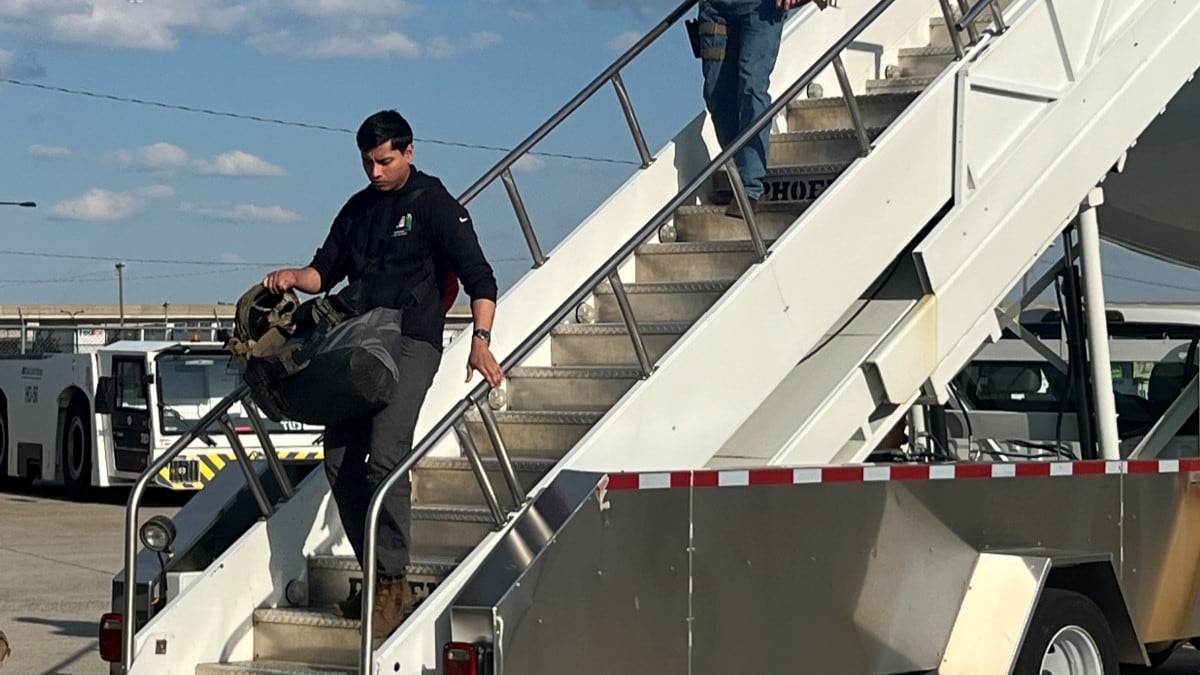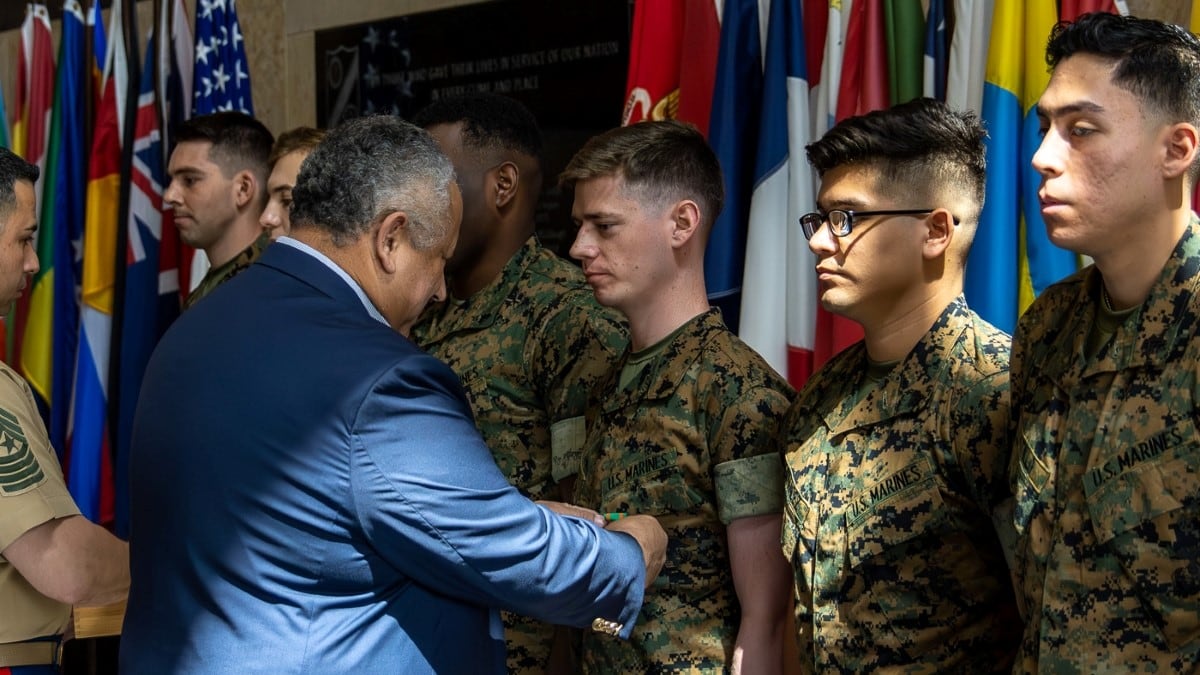The Marine security guards who were stationed at the U.S. embassy in Sudan before deadly fighting prompted an evacuation received medals Friday from the top civilian in the Department of the Navy.
At Marine Corps Base Quantico, Virginia, Secretary of the Navy Carlos Del Toro pinned medals to the chests of the 12 Marines who were involved in preparing for the April 23 evacuation, according to a Marine Corps news release the day of the ceremony.
“The example that you have set protecting the life of the ambassador and the lives of all the people who were at the embassy has been nothing short of extraordinary,” Del Toro said, according to the release. “I wanted to make sure that before you left this building and head onto other assignments, that I came here today to look you in the eye and say, ‘Thank you.’”
The Marines who still have time left to serve in the embassy security program have received new assignments and will begin traveling back overseas, according to the release.
RELATED

The detachment commander, Staff Sgt. Derek Ferrari, received a Navy and Marine Corps Commendation Medal, awarded to service members who act “in a manner above that normally expected, and sufficient to distinguish the individual above those performing similar services,” according to the awards manual.
Eleven Marines received Navy and Marine Corps Achievement Medals, which recognizes merit that doesn’t rise to the level of a Navy and Marine Corps Commendation Medal, according to the awards manual.
Those 11 Marines are: Sgt. Komlan S. Akli, of Lyons, Illinois; Sgt. Joshua P. Arledge, of Enterprise, Alabama; Sgt. Kyle S. Bangerter, of Sarasota, Florida; Sgt. Alonzo J. Longstreet, of Milpitas, California; Sgt. Manuel Moncayo Jr., of El Paso, Texas; Cpl. Jason R. Castillo, of Houston, Texas; Cpl. Erik O. Hernandez, of Las Vegas, Nevada; Cpl. Michael T. Jones, of Flowery Branch, Georgia; Cpl. Marvin J. McCaskill, of Salisbury, Maryland; Cpl. Christopher B. Wolfert, of Keizer, Oregon; and Cpl. Karl D. Meier, of Sturgeon Bay, Wisconsin.
“The detachment did exactly what is expected of U.S. Marines during times of uncertainty,” Akli said in the release, “and being awarded for that by the SECNAV means a lot to myself and the rest of the detachment.”
It was U.S. special operations forces, reportedly including SEAL Team Six and the Army’s 3rd Special Forces Group, who evacuated the embassy’s personnel.
The lack of outside Marine involvement in the evacuation threw into relief for some Marine leaders what they see as the under-resourcing of the Navy’s amphibious fleet.
Because of a dearth of ready amphibious ships in the region, no Marine expeditionary unit — whose job is to respond to crises — was there to assist in the evacuation.
Gen. David Berger, the Marine commandant, said in the days following the evacuation that he felt like he had let down the Africa combatant commander, Marine Gen. Michael Langley, by not being able to send a MEU to Sudan, Breaking Defense reported.
Even so, the Marine security guards already stationed in Sudan played an important role in preparing for the evacuation and keeping civilian staff safe, U.S. officials have said.
As a military power struggle erupted into violent conflict in Khartoum, the Sudanese capital, the Marines worked to get the embassy ready for an evacuation. All the while, they continued to guard the embassy 24 hours a day, according to the release.
In an interview with Marine Corps Times days after their return from Sudan, the Marine security guards weren’t authorized to provide many specifics on the actions they took at the embassy.
But Gunnery Sgt. Matthew Bragg, a spokesman for the Marine security guard program, told Marine Corps Times that embassy evacuation procedures often involve shredding or burning documents housed within the embassy, managing the efforts to recover embassy personnel stranded outside the embassy compound and ensuring the embassy is clear right before the evacuation takes place.
The Marines provided command and control for the evacuation, the news release confirmed.
One particularly meaningful moment, Arledge previously recalled to Marine Corps Times, was the retirement of the embassy’s American flag. The Marine guards lowered the flag, folded it and handed it to the ambassador — one of the last steps of decommissioning the embassy.
In the week-plus leading up to the evacuation, the Marines generally slept around three hours a night as they worked to get the embassy squared away, they previously told Marine Corps Times.
“All the Marines, we took care of each other that entire (time),” Longstreet told Marine Corps Times. “All of us made sure that we had a sense of humor. We were always there for each other. Some of us were cooking meals for each other. It was a full-team effort.”
Irene Loewenson is a staff reporter for Marine Corps Times. She joined Military Times as an editorial fellow in August 2022. She is a graduate of Williams College, where she was the editor-in-chief of the student newspaper.





